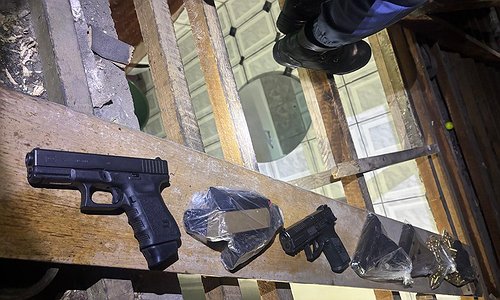Major investment in educational institutions
On Wednesday, Higher Education and Training Minister Dr Blade Nzimande, announced a major new investment in university infrastructure which will see very significant government spending over the next two years on new student housing, laboratories, communications technology, and other essential facilities, as well as essential maintenance and the further expansion of the new universities.
The Department of Higher Education and Training (DHET) will pump almost R 7-billion into a range of projects across the country over a two year period, including R 1-billion per year into the new Mpumalanga University and Sol Plaatjie University in the Northern Cape. None of this spending will go towards repairing or replacing buildings damaged and vandalised over the past 18 months by a small group claiming to represent protesting students, as this is being dealt with through other means.
A further R 2,5-billion over the next five years has been targeted at the historically disadvantaged universities so that they can realise their full academic potential while shaking off their historic image as the academic orphans of apartheid.
The R 6,964-billion additional infrastructure spending announced today, will be allocated as follows:
R 2,1-billion for student housing
R 1,475-billion to all universities towards refurbishing and updating current infrastructure and to deal with maintenance backlogs
R 1-billion per year for the further development of Mpumalanga and Sol Plaatjie universities
R 600-million to the new Sefako Makgatho Health Sciences University to further strengthen its development
R 240-million for priority infrastructure projects
R 248-million for new infrastructure projects at historically disadvantaged institutions
R 300-million for priority projects identified by universities, including improved access for disabled staff and students, laboratories, security, and communication technology development
“Government is committed to strengthening, developing, and broadening access to universities, as is visible in the doubling of student numbers over the past 20 years,” said Minister Nzimande. “In doing so, we have opened a major route to empowerment through knowledge and skills which can benefit both individuals and the economy. But access is just one side of the coin, we have always been aware that we must also strengthen the institutions, not least by increasing our infrastructure spending.”
Investment in infrastructure, including teaching and research spaces, equipment, and conducive student living environments is key to ensuring that the universities can deliver on their empowerment mandate, said the Minister. This approach required a particular commitment to improving living and learning conditions in the historically disadvantaged institutions.
Today’s announcement of a massive boost in university infrastructure spending builds on the significant progress achieved since 2007 through the DHET’s Infrastructure and Efficiency Grant. This has in the past ten years seen R 14,87-billion spent on ensuring that the universities have adequate infrastructure to ensure growth in priority areas such as science, technology, and engineering, animal and human health sciences, and teacher education programs.
All universities across the country have benefited from this investment, with historically disadvantaged institutions, prioritised since 2010 for a greater proportion of the funding. The University of Venda as an example has been transformed into a modern university, while the University of Limpopo was funded by the NSF to obtain South African Institute of Chartered Accountants accreditation for its postgraduate degree in accounting. The NSF will also fund infrastructure totaling R 375-million to ensure that aspiring chartered accountants are able to complete their full four years of studies at the institution.
With the assistance of a grant of over R 350-million over the past two years from the National Skills Fund (NSF) aimed at alleviating the national shortage of doctors and vets, the medical and veterinary facilities at the University of Pretoria have been able to double their student intake from this year. The funds have assisted in the construction of the 301 bed Tuks Bophelong Student residence dedicated to medical students, as well as the Lesedi Complex, which includes a multi-purpose lab for 200 students, five dry skills labs, a student activity and a client services centre, and a dirty skills lab within the existing animal hospital.
Other recent NSF infrastructure spending includes R 204-million towards work-integrated learning facilities for engineering students at the University of Johannesburg, including a training workshop, design, and industrialisation centre. The facilities provide on-the-job training for mechanical and electrical engineering students and are available to engineering students from across the country.
The NSF has provided the Cape Peninsula University of Technology with R 96-million towards its renewable energy training facilities. This South African Renewable Energy Training Centre is the first in the country and is ensuring that South Africa has the skills to support the national strategy of promoting renewable energy as a supplement to energy production from fossil fuels such as coal.
A further special infrastructure fund has ensured that two new universities – the University of Mpumalanga and Sol Plaatjie University in the Northern Cape – have been able to develop very rapidly, providing additional capacity for students, particularly from those previously underserved provinces
“We continue to make major progress in ensuring that our universities are not only open to young people who would previously have faced almost insurmountable barriers to academic study, but also that our institutions are indeed equipped to ensure that they receive a quality education,” said Minister Nzimande. “We are of course aware that there is still lots to do, especially in areas such as student housing, but we are also very grateful that government as a whole has, over the past two years, prioritised spending on higher education, including fee support for poor students and ensuring that nobody from a family with an annual income below R 600 000 has faced a fee increase this year.”
Besides significantly increased spending on universities, high priority continues to be given to the further education sector centred on the technical and vocational education and training (TVET) colleges. The NSF has committed R 2,5-billion towards construction of new TVET college campuses and the refurbishment of two existing campuses.
Among the new campuses, the Thabazimbi campus of Waterberg TVET College was officially opened on 30 June last year. Nkandla A and Bhambanana are nearing completion, and will become operational during this academic year. Construction at the remaining 13 sites will commence within the next financial year.
The DHET continues to prioritise the refurbishment and new construction of student housing at universities and TVET colleges because of the huge need, largely because more young people from poor backgrounds than ever before are studying away from home. The R 2,1-billion announced today will assist in accelerating the program to provide an additional 200 000 beds at universities.
“Meeting this target within a reasonable period cannot be achieved by government alone,” Minister Nzimande said. “We are looking at innovative ways of using government’s funding to leverage additional private sector and donor investment as we further accelerate the construction of new residences for TVETs and universities.”
As part of the expanded residence construction program, feasibility studies to determine the exact requirements are underway at institutions across South Africa, including:
King Hintsa TVET College
North West University Mafikeng campus
University of Limpopo
University of the Western Cape Bellville Campus
University of Zululand KwaDlangezwa campus
Vaal University of Technology Vanderbijlpark campus
A further five universities have been identified as priority projects, including:
Nelson Mandela University Summerstrand campus
Sefako Makgatho Health Sciences University GaRankuwa campus
Tshwane University of Technology eMalahleni campus
University of the Free State South campus
University of Johannesburg Soweto campus.
“Besides new construction, the DHET has worked with universities to identify maintenance and refurbishment requirements as we ensure that our existing infrastructure continues to be fit for purpose,” said Minister Nzimande. “As a result of the infrastructure audit and the submission of comprehensive maintenance plans by the institutions, we have dedicated R 1,457-billion to this area over the next two years.”
The newly established R 2,5-billion Historically Disadvantaged Institutions Development Grant to be disbursed over the next five years will assist the previously disadvantaged universities to up their game and shake off the legacy of the past. This funding is targeted at the Universities of
Fort Hare
Limpopo
Venda
Walter Sisulu University
Western Cape
Zululand
Mangosuthu University of Technology
Sefako Makgatho Health Sciences University, which incorporated the former Medunsa campus of the University of Limpopo
To qualify for this funding, these institutions had to develop detailed business plans based on identified strengths and weaknesses, including governance, management, financial and academic issues.
Submitted by: Poppy Maluka / Government Communications (GCIS) on behalf of the Ministry of Higher Education and Training
Image URL



